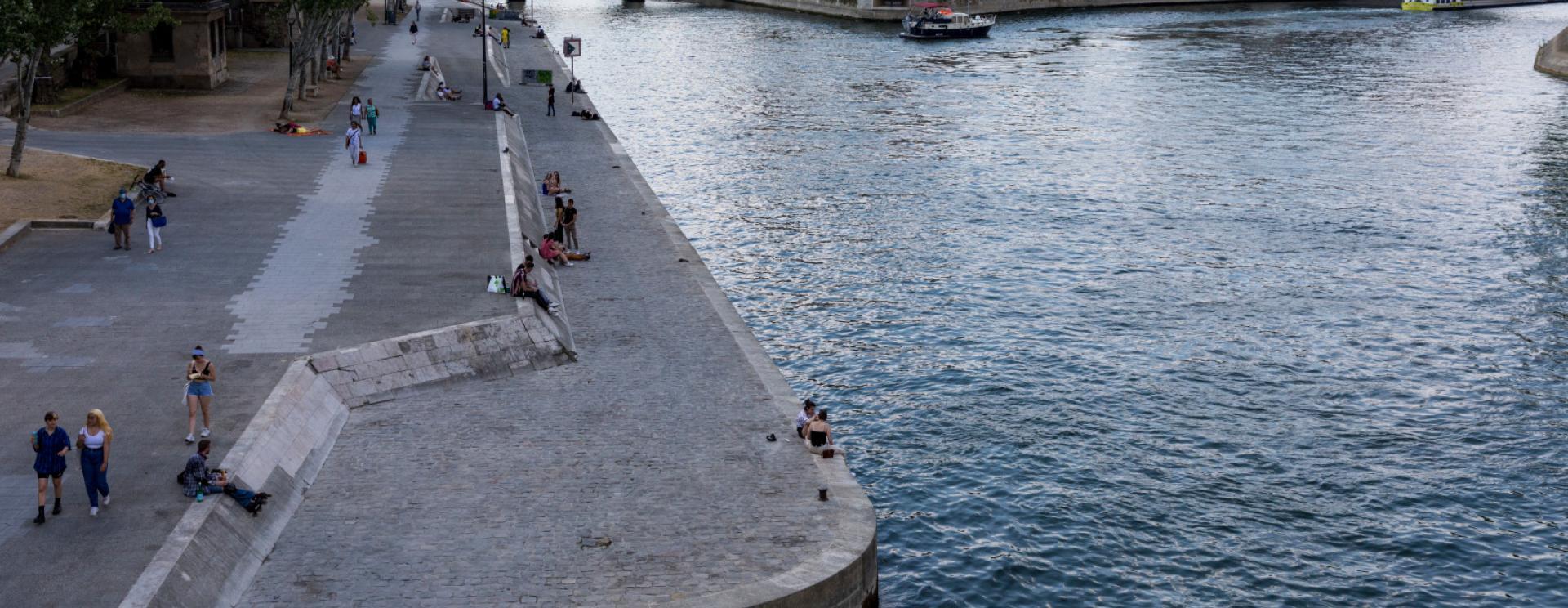- ABOUT US
- GOODS
- A multi-sector focus
- A maritime service offering in the first rank
- An attractive multimodal offering
- An expanded shortsea service offering
- Terminaux portuaires et quais à usage partagé
- High-quality ship services
- Fluid, facilitated goods throughput
- A port that puts its performance figures in the public domain
- PASSENGERS
- MULTIMODALITY
- ECOLOGICAL TRANSITION
- INNOVATION

The 2024 Olympic and Paralympic Games: HAROPA PORT is counting on the Seine
Published on - Updated
River transport: a winning solution for the logistics of the 2024 Olympics
Working with Paris 2024
On January 29, 2024, HAROPA PORT signed a collaboration agreement with Paris 2024 with the aim of integrating the entire river ecosystem into the organisation and running of the Games and accelerating the energy transition of the Seine axis.
This event represents an opportunity to continue the greening of ports and to increase the number of urban river logistics solutions. HAROPA PORT has already electrified its quays and the boat tours companies are continuing to convert their fleets. Beyond the Games, the port is also committed to ensuring that all future river transport projects offer "zero emission" operation.
For its part, Paris 2024 will be promoting the advantages of the Paris region port network to its partners in terms of river transport and the use of low-carbon boats for the opening ceremony.
In addition to the organisation and proceedings of the Games, Paris 2024 and HAROPA PORT see this cooperation as part of a sustainable approach to accelerating French-style innovation and the environmental transition that must accompany the legacy of the Paris Games.
Contributing to Games logistics
Since 2020, river transport and the ports of the Paris region have been used to evacuate construction site waste and supply materials to the Games sites in the heart of the city. This commitment has already enabled the evacuation of 494,000 tonnes of construction site waste by river, 50,000 fewer trucks on the roads.
Port land made available
In addition to the Paris ports and quays that will host some of the events, land in the port of Gennevilliers was used to build the pedestrian bridge to the Olympic Village. It was then transported by river.
The Bruyères-sur-Oise multimodal platform houses facilities needed to create the substrates for the landscaped areas of the athletes' Village. This innovative process will be tested on 25,000 sq.m of the port.
Work to improve water quality
In 2019, HAROPA PORT launched a vast project on its quays to clean up the wastewater from the floating installations in preparation for the open water events.
The work involved installing pipes and connection points to collect the wastewater from the 223 floating installations (entertainment & leisure and accommodation boats) and transfer it to the urban network.
This work is part of the overall investment program set up by the "Bathing Water Quality for the Olympic and Paralympic Games" steering committee, chaired by the Prefect of the Ile-de-France Region and the Mayor of Paris.
They are being carried out by HAROPA PORT at a cost of nearly €15 million, 30% of which is being co-financed by the Seine Normandy Water Agency.
In all, some twenty ports are involved: Montebello, Conti, Saints-Pères and Grands Augustins, la Tournelle, Debilly, La Rapée, Point du Jour, Alfortville, Suffren, Saint-Bernard, Grenelle, Charenton, Passy, Boulogne, La Bourdonnais, Gros Caillou, Javel, National and Sèvres.
The success of the Olympic Games will be measured by the positive legacy they leave for the Paris region. For HAROPA PORT, this legacy will be embodied in the ports of tomorrow: with shared use of the Seine and more virtuous logistics.
Let’s count on the Seine together !
Key figures :
494,000 t of excavated material already removed
50 000 fewer trucks on the roads
River transport = 5 times less CO2
